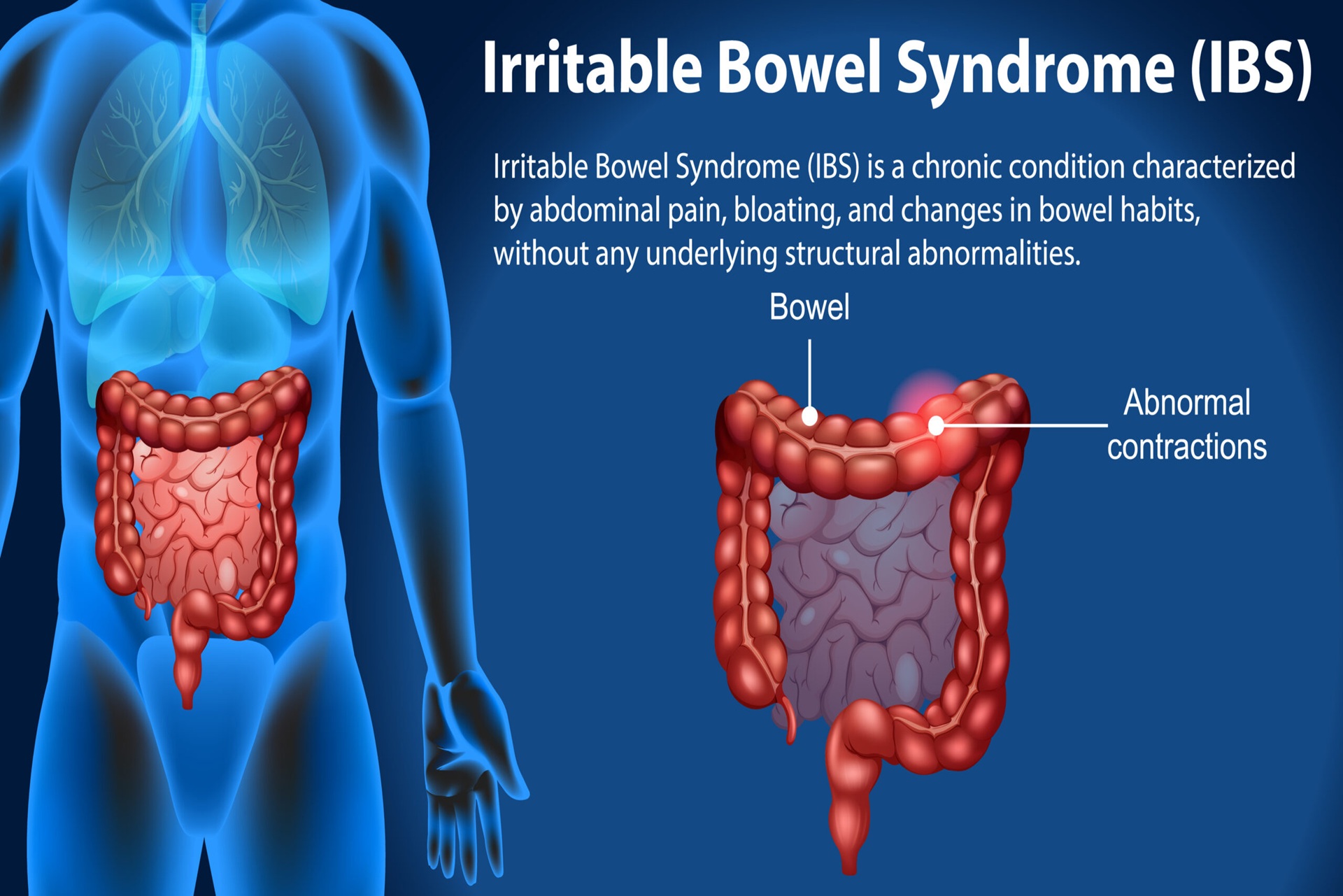
Overview:
Irritable Bowel Syndrome (IBS) is a common digestive disorder affecting the large intestine. It causes abdominal pain, bloating, and irregular bowel movements. IBS is a chronic condition that requires long-term management but does not cause permanent damage to the intestines.
Causes:
The exact cause of IBS is unknown, but factors such as abnormal gut motility, stress, hormonal changes, food intolerances, and an imbalance in gut bacteria may contribute. Certain foods, infections, and emotional stress can trigger symptoms.
Symptoms:
Common symptoms include abdominal cramps, bloating, diarrhea, constipation, or alternating between both. Some individuals experience mucus in the stool, excessive gas, or an urgent need to pass stools. Symptoms vary from person to person and can worsen with stress or certain foods.
Treatment:
IBS is managed through dietary changes, stress management, and medications. Patients may need fiber supplements for constipation or antidiarrheal medications for diarrhea. Probiotics, antispasmodic drugs, and lifestyle modifications, such as regular exercise and hydration, also help control symptoms.
Precautions:
Avoiding trigger foods like dairy, caffeine, spicy foods, and processed meals can prevent flare-ups. Managing stress through yoga, meditation, and counseling is also beneficial.
Prevention:
Maintaining a balanced diet, staying hydrated, engaging in regular physical activity, and managing stress effectively can help prevent IBS symptoms.
For expert IBS care, visit KDM Hospital in Lucknow, offering ambulance services, budget-friendly care, Ayushman card acceptance, and 24/7 doctor availability.
